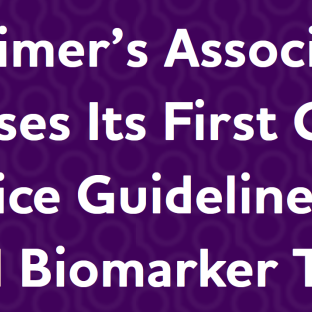On 29 July, the Alzheimer’s Association published a clinical practice guideline on the use of blood-based biomarkers (BBMs) in diagnosing suspected Alzheimer’s disease (AD) within specialised care settings in the journal Alzheimer’s & Dementia. The guideline was presented at the Alzheimer’s Association International Conference 2025 in Toronto. An international panel of clinicians and experts conducted a systematic review to assess the diagnostic accuracy of blood-based biomarkers (BBM) biomarkers, including phosphorylated-tau (p-tau) variants and amyloid-beta (Aβ) ratios, compared with cerebrospinal fluid biomarkers, amyloid PET imaging, or neuropathology. The review applied the GRADE framework to evaluate the evidence and develop recommendations. The guideline recommends BBM tests with at least 90% sensitivity and 75% specificity as triage tools.
Tests reaching 90% sensitivity and specificity can substitute for amyloid PET or cerebrospinal fluid testing in patients with cognitive impairment evaluated by specialists. The panel notes variability in test accuracy across commercially available BBMs and stresses that BBMs should complement, not replace, comprehensive clinical assessments. These recommendations are brand-agnostic and performance-based, intended to adapt with ongoing evidence updates. The guideline highlights emerging approaches, such as biomarker combinations and multi-threshold testing, which may improve diagnostic precision in the future. The Alzheimer’s Association intends this guideline as the first in a series supporting dementia specialists through ALZPro™, its central resource hub for dementia care and research. The article has been published open access and can be read here: https://doi.org/10.1002/alz.70535
